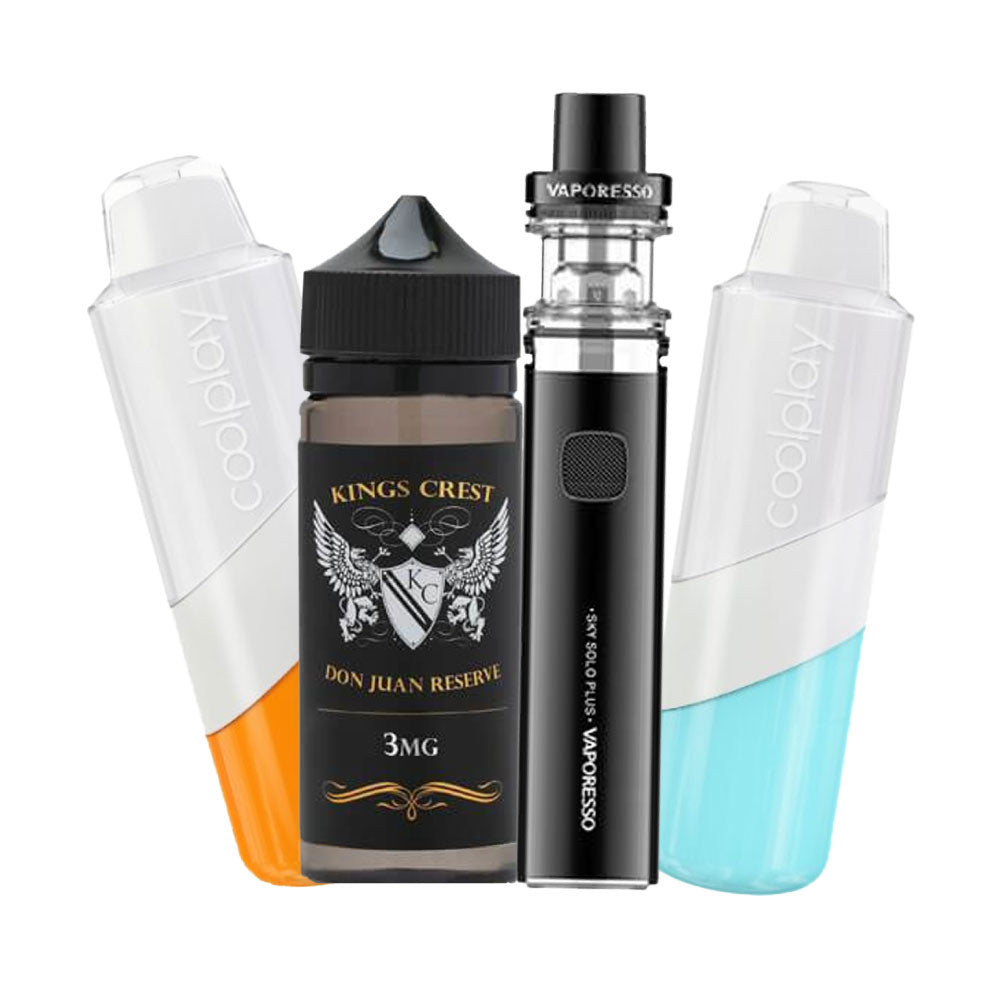Quinto Elemento Vap
Uwell Whirl S - Coil Open Box
Uwell Whirl S - Coil Open Box
Nota: El empaque de este producto puede estar abierto o averiado. Garantía: 1 mes *Aplican términos y condiciones.
El Uwell Whirl S es un paquete todo en uno, alimentado por una batería interna recargable de 1450mAh y emparejado con un tanque magnético dedicado que cuenta con un innovador sistema de bloqueo de bobina. Este dispositivo tiene una potencia máxima de 18 vatios y se puede activar con el botón o disparar. El tanque tiene una capacidad de 2ml y cuenta con un sistema de llenado top press-and-twist. El UWELL Whirl S es compatible con la bobina de 0.8-ohm UN2 Meshed-H que es parte de la serie UWELL Whirl S Coil.
Características:
- Dimensiones: 122 mm por 20 mm (diámetro)
- Batería integrada de 1450mAh
- Potencia: 18w
- Resistencia 0.8 ohm
- Construcción de acero inoxidable
- Modos de disparo dual / disparo activado por tiro / botón de disparo
- Capacidad del tanque de 2ml
- Cuartos de refuerzo de vidrio
- Relleno superior
- Anillo de control de flujo de aire ajustable
- Conexión magnética
Contenido del Paquete:
- 1 x Uwell Whirl S Coil
En Quinto Elemento Vap nos especializamos en la venta de vaporizadores, líquidos para vapeo, repuestos, accesorios y más.
Shipment
Shipment
Warning Products with Nicotine
Warning Products with Nicotine
What is nicotine?
Nicotine is an alkaloid derived from ornithine found in plants of the genus Nicotiana sp. The effects of nicotine in man depend on the dose, being able to behave as a stimulant or as a blocker of ganglionic nerve transmission.
How does nicotine work?
Nicotine is absorbed into the bloodstream and reaches the adrenal glands, which are located above the kidneys. These glands release adrenaline, which increases blood pressure, heart rate, and breathing rate. Adrenaline also causes many pleasant sensations, all at the same time.
What other effects does nicotine have on health?
Although nicotine is addictive, most of the health effects are caused by other chemicals found in tobacco. Tobacco use damages each and every organ in the body. Smoking tobacco products can cause lung, mouth, stomach, kidney, and bladder cancer. It can also cause lung diseases — such as coughs — and heart disease, vision problems, and yellowed teeth. Smokeless tobacco products are also dangerous. They can cause mouth cancer and heart and gum disease.
How is nicotine addiction created?
Over time, the nicotine found in tobacco can change the way the brain works. When a person stops using nicotine, the body can become confused and start to feel very sick. This makes it difficult to quit nicotine, even when we know it is harmful. That is called addiction.
Contraindications of Nicotine
Hypersensitivity to nicotine, non-smokers or occasional smokers, children, pregnancy, lactation, recent myocardial infarction, unstable angina pectoris or aggravation of it, Prinzmetal's angina, serious cardiac arrhythmias, cerebrovascular accident, insuf. advanced cardiac.
Warnings and Precautions Nicotine
HTA, stable angina pectoris, enf. cerebrovascular disease occlusive peripheral arterial insuf. heart disease, diabetes mellitus, peptic ulcer, hyperthyroidism, pheochromocytoma, IR or IH, atopic or eczematous dermatitis (transdermal patches). Oral forms caution in: active esophagitis, oral or pharyngeal inflammation, gastritis. Risk of inducing tolerance and physical dependence.
Nicotine in pregnancy
Nicotine has harmful effects on fetal health clearly defined as: low birth weight, increased risk of spontaneous abortion and increased perinatal mortality. It can produce, depending on the dose, alterations in the fetal circulation and in the respiratory movements of the fetus. In the 3rd trimester, nicotine has hemodynamic effects (such as changes in fetal heart rate) that can affect the fetus near delivery.
Nicotine in Lactation
Contraindicated in lactating women. Nicotine is excreted in breast milk in amounts that may affect the nursing infant, even at therapeutic doses. Consequently, during the lactation period, the use of nicotine replacement therapy products should be avoided, as should smoking. If you have not been able to quit smoking, the use of oral forms is preferable to that of patches. The use of nicotine replacement therapy during lactation should only be started after consulting a doctor.
Nicotine Adverse Reactions
Systemic: asthenia, flu syndrome, headache, pain, constipation, diarrhea, dyspepsia, nausea, vomiting, flatulence, hiccups, gastritis, stomatitis, esophagitis, myalgia, arthralgia, sleep disorders, insomnia, dyspnea, tremor, dizziness, dryness mouth, nervousness, increased coughing, pharyngitis, palpitations, increased sweating. Local: transient rash, pruritus, edema, burning and tingling sensations.



